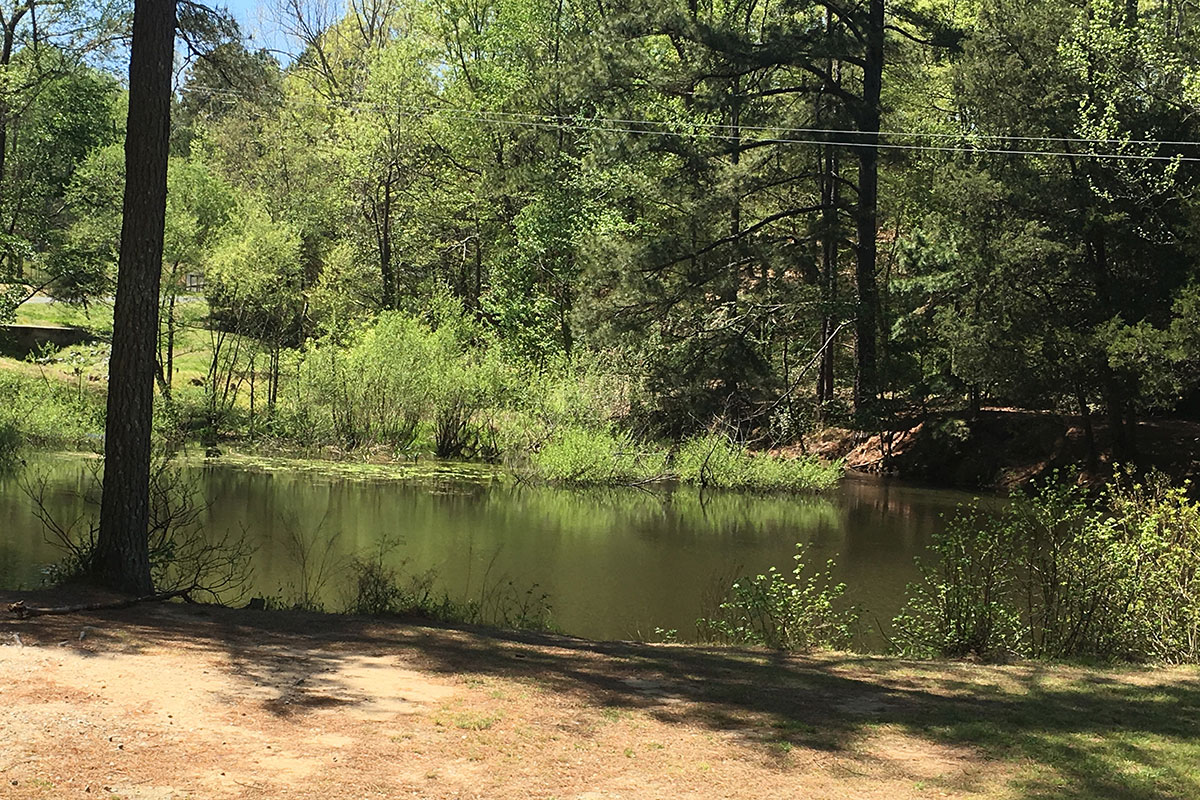UNC-Chapel Hill was recently named a recipient of the 319(h) Grant from the U.S. Environmental Protection Agency for an ecological advancement project that will improve the quality of water in the runoff from campus.
 The EPA awarded UNC-Chapel Hill’s Energy Services department Stormwater Management office in the Energy Services Department $198,856 to retrofit the pond at the UNC Outdoor Education Center from its use as a feature on the University’s former golf course, to a stormwater wetland. Over the last few years the pond has become filled with sediment from a nearby parking lot, deteriorating both ecologically and aesthetically.
The EPA awarded UNC-Chapel Hill’s Energy Services department Stormwater Management office in the Energy Services Department $198,856 to retrofit the pond at the UNC Outdoor Education Center from its use as a feature on the University’s former golf course, to a stormwater wetland. Over the last few years the pond has become filled with sediment from a nearby parking lot, deteriorating both ecologically and aesthetically.
“We are very grateful to the Stormwater Management team for their enthusiasm and willingness to partner with us,” said David Rogers, director of Carolina outdoor education center. “By retrofitting the pond, we can create an ecological education classroom for our participants, where our staff help them to appreciate the intent behind the plantings, the flow of clean water downstream, reduction in sediment runoff and the flora and fauna that a healthy pond and wetland ecosystem can support.”
The project also supports Chancellor Carol L. Folt’s Three Zeros Environmental Initiative, which, among other goals, aims to improve the quality of water leaving the campus. Currently the project is looking for faculty partners to assist with research.
“Improvements to UNC’s campus like the work already done at Battle Grove and this upcoming project at the Outdoor Education Center allow Carolina to reduce its environmental impact considerably,” said Brad Ives, chief sustainability officer and associate vice chancellor for campus enterprises. “We will continue to work with our partners at the state and federal level to reduce our footprint and create a living learning laboratory for our campus community.”
About UNC’s Three Zeros Environmental Initiative:
Launched in fall 2016, the Three Zeros Environmental Initiative is Carolina’s integrated approach to reducing its environmental footprint through three sustainability goals:
- net zero water usage
- zero waste to landfills
- net zero greenhouse gas emissions.
Implementing the Three Zeros goals will improve operational efficiency, generate cost savings, and will create a living-learning laboratory for students, faculty and staff to study and advance the most recent developments in sustainability policy and technology. Three Zeros includes everything from individual behaviors to world-changing research and collaborations.
